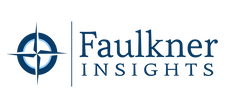|
My grandfather is an inveterate stock-ticker-watcher. He follows the markets every weekday, watches Jim Cramer and his obnoxious antics religiously, and like all serious investors, has his favorite companies—and right at the top of the list is the perennial blue-chip Procter & Gamble. I got a job with P&G right out of school, and to say my grandfather was proud of me would be an understatement. During a recent file clean-out session, I found multiple P&G-related newspaper and magazine articles he’d clipped and sent to me, with his elegant scrawl across the top pointing out something of interest and signed, “Daddy Ben.”
I left P&G last month after 14 years. Why in the world would I leave such a solid, reputable company, known not only for world-class brands, but also for taking such great care of its employees? (I can’t tell you how many times I’ve heard the “janitor who retired from P&G as a millionaire” story.) Most people were polite enough not to ask me this directly, but my closest family members felt exempt from this propriety—all the more when they heard I was leaving my stable, steady career to start my own consulting practice. To say Daddy Ben was mystified—even gobsmacked—would not be overstating the point. I spent the last six years of my time at P&G working in corporate innovation—identifying, evaluating and developing new product categories, business models, consumer groups and brands—and it was there that I found my passion. The realm of the future, of possibilities, of discoveries waiting to be found, of problems looking for solutions, that’s where I like to live. As William Gibson famously observed, “The future is already here—it’s just not evenly distributed.” Looking for those pockets of the future-already-here in trends, in unarticulated consumer needs and compensating behaviors, and then visualizing and creating that future for the world-at-large, that’s exciting stuff. So, leaving P&G has less to do with P&G itself, and far more to do with my glimpse into a broader future of possibilities—building on the knowledge I gleaned from my time at P&G. I learned discipline and rigor, but also how those things can morph into artificial constraints. I benefited from the scale and resources of a huge corporation, but saw how that can limit experimentation and risk-taking. I worked with wicked smart people, but also learned that “not invented here” syndrome can be crippling for real innovation, and that culture is more important than many managers are willing to acknowledge. And now it’s my turn. Here’s where I take all the lessons I’ve learned: the skills, the experiences, the expertise—the sum total of the things I know how to do, the ways I know how to create and discover and make-better, and—just as important—the knowledge of the ruts and traps to avoid. I expect that being an independent consultant will bring a steeper learning curve than I’ve ever experienced, but I can’t wait for the new challenges. And I especially can’t wait for the first time I get to clip an article or forward a glowing testimonial to Daddy Ben featuring my own company. It may be hard for him to completely understand why someone would choose uncertainty over stability, but I’m grateful to have the choice, the opportunity to learn, and yes, maybe even to fail. In that, I must agree with Coach John Wooden’s sentiment, “Failure is not fatal, but failure to change might be.”
0 Comments
Leave a Reply. |
AuthorSarah Faulkner, Owner Faulkner Insights Archives
July 2021
Categories
All
|

 RSS Feed
RSS Feed
